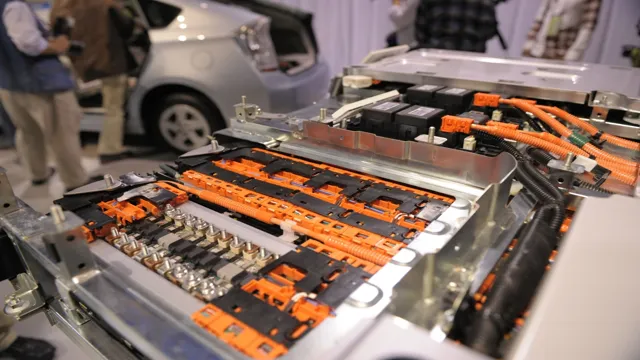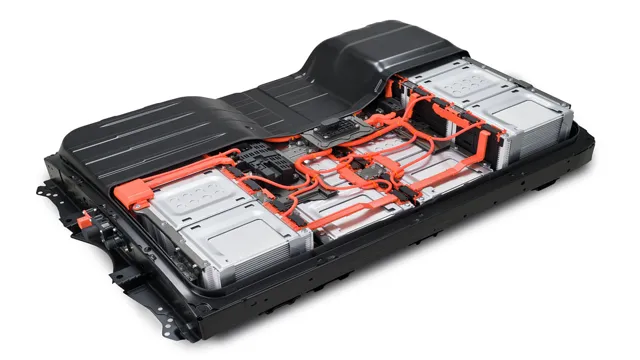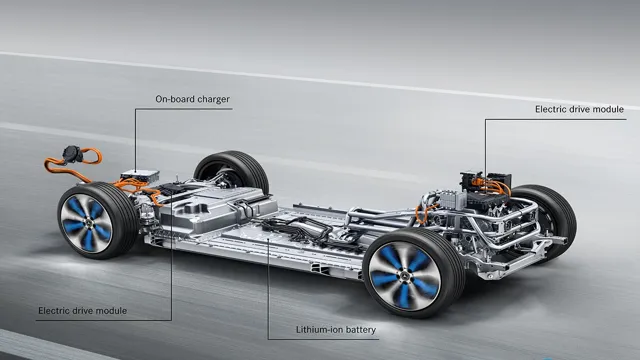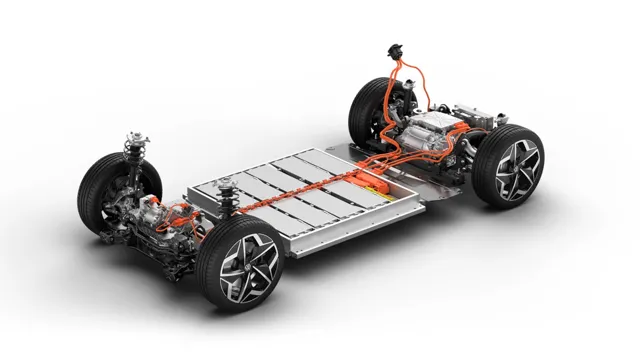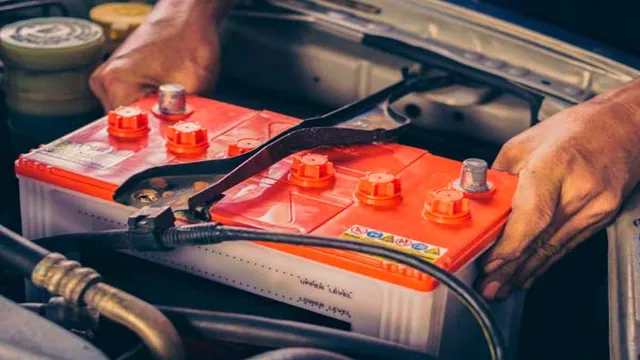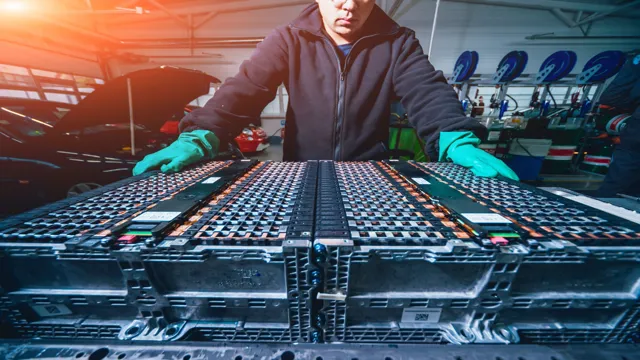The Shocking Truth About Electric Car Battery Prices: Debunking Myths and Revealing the Real Costs
Electric cars are fast becoming the future of personal transportation. With their lower carbon emissions and fuel efficiency, they have become a popular choice for environmentally conscious consumers. However, the one major drawback to electric vehicles is the high cost of their batteries.
But just how much do these batteries cost, and what factors affect this cost? In this blog post, we will delve into the intricacies of the cost of electric car batteries and explore the reasons why they can be so expensive. So, buckle up and let’s take a deep dive into the world of electric car batteries.
Overview of Electric Car Batteries
If you’re interested in purchasing an electric car, one of the biggest considerations you’ll need to make is the battery price. The cost of an electric car battery is one of the primary factors that determine the overall cost of the car. It’s also an important factor in determining the operating cost of the car, as a larger battery will generally result in a longer driving range.
The price of an electric car battery can vary widely depending on the make and model of the car, the size of the battery, and the technology used in the battery. In general, electric car batteries are becoming more affordable as the technology improves and production ramps up. However, when it comes to battery prices, you should always do your research and consider all of your options before purchasing an electric car.
What Are Electric Car Batteries?
Electric car batteries are the heart and soul of electric vehicles. They are responsible for storing energy for the electric motor, powering the car and making it run. These batteries come in different shapes and sizes, but are mostly made up of lithium-ion cells.
Each of these cells hold a certain amount of energy, and are connected together in modules to form a battery pack. The battery pack is what gives electric cars their range, which is the distance the car can travel on a single charge. As the technology continues to improve, so do the batteries, resulting in longer ranges and faster charge times.
So, if you’re thinking of joining the electric vehicle revolution, a battery is one of the most important components you need to consider.

Types of Electric Car Batteries
Electric car batteries come in various types, each with its unique characteristics. These types include lead-acid, nickel-metal hydride (NiMH), lithium-ion (Li-ion), and solid-state batteries. Lead-acid batteries are the oldest and the heaviest type of batteries used in electric cars.
They are known for their low cost but are less efficient than the other types. NiMH batteries were adapted from the technology used in hybrid vehicles, and they offer a higher energy density than lead-acid batteries. However, they still have lower power output and are more expensive to produce than Li-ion batteries.
Li-ion batteries are the most commonly used type of electric car battery due to their higher energy and power density. They are lighter, more efficient, and have a longer lifespan than other batteries. Solid-state batteries are currently being developed and have the potential to replace Li-ion batteries in the future due to their higher safety and longer lifespan.
Ultimately, the best type of electric car battery depends on the specific needs and requirements of the driver.
Factors Affecting Electric Car Battery Price
The battery price of electric cars can vary depending on a few different factors. One of the main factors is the size and capacity of the battery. Generally, larger batteries with higher capacities will be more expensive than smaller ones.
Another factor is the type of battery technology used. Lithium-ion batteries are the most common type used in electric cars and are generally more expensive than other battery types. The supply and demand for batteries can also affect the price, with high demand driving up prices.
Additionally, battery prices can be influenced by the cost of the materials used in their production, such as cobalt and nickel. As battery technology continues to evolve and become more advanced, it’s possible that prices will continue to decrease over time. However, for now, the battery price of electric cars remains one of the major factors affecting their overall cost.
Battery Capacity and Range
When it comes to electric cars, one of the most important factors that influences the cost of the vehicle is the battery capacity. The larger the battery capacity, the more expensive the electric car will be. This is because the battery is often the most expensive component of the electric car.
Other factors that can affect the cost of an electric car battery include the technology used, the size and weight of the battery, and the supplier. Additionally, the range of the electric car is also affected by the battery capacity. A larger battery capacity usually means that the electric car can travel further on a single charge, which can be an important consideration for those who plan to use their electric car for longer trips.
Ultimately, the cost of an electric car battery will continue to decrease as technology improves and the production of electric cars becomes more widespread, making this innovative and environmentally friendly mode of transportation more accessible to everyone.
Battery Chemistry and Materials
When it comes to electric cars, the battery is one of the most expensive components. There are several factors that affect the price of electric vehicle batteries. The first is the type of battery chemistry used, with lithium-ion being the most common.
This type of battery is expensive due to the materials needed to produce it, which include cobalt, nickel, and lithium. The availability and cost of these materials can cause fluctuations in the price of the battery. The size of an electric car’s battery pack also affects its price, with larger packs costing more.
Additionally, the technology used in the battery can affect its price, with advanced features like thermal management and fast charging increasing the cost. Improvements in manufacturing processes and the scalability of production can also affect battery prices. Finally, government incentives and regulations can lower the cost of electric car batteries, as well as encourage their production.
With the increasing popularity of electric cars, battery prices are expected to decrease as technology improves and production becomes more efficient.
Manufacturer and Model
“When it comes to the prices of electric car batteries, there are several factors to consider, one of which is the manufacturer and model. Different manufacturers have different technologies, production costs, and pricing strategies. For example, Tesla, which is known for its high-performance electric vehicles, has a premium pricing structure for its batteries.
On the other hand, Nissan’s Leaf has a more affordable battery option. Additionally, the model of an electric car plays a vital role in the price of the battery. A larger battery that can handle a longer driving range will be more expensive than a smaller one that cannot.
Furthermore, newer models with the latest technology will be more expensive than older models with outdated technology. Therefore, buyers should research the market and compare prices before settling on a model and manufacturer to ensure they get the best value for their money.”
Current Electric Car Battery Prices
When it comes to electric cars, one of the most significant cost drivers is the battery. Since batteries account for a large proportion of the overall cost of an electric car, it’s crucial for manufacturers to bring down battery prices. Over the past few years, there has been a steady decline in the battery cost of electric vehicles (EVs).
According to a study by BloombergNEF, the average price of EV batteries dropped from $1,100 per kilowatt-hour in 2010 to $137 per kWh in 2020, a staggering 89% reduction. As battery technology continues to evolve, the cost reduction is expected to continue. Experts predict that by 2025, the price of EV batteries will fall below $100 per kWh, making them cheaper than traditional combustion engines.
Lower battery prices have already made EVs more affordable than ever, and as the prices continue to decline, more and more people will be able to switch to electric cars, resulting in a greener and more sustainable future.
Electric Car Battery Price Comparison
Electric car battery prices have experienced a significant drop in recent years, making EVs more affordable. Batteries are the most expensive component of an electric car, accounting for up to 50% of its cost. However, several factors continue to impact electric car battery prices, including battery size, chemistry, and performance.
As of today, the average cost of a lithium-ion battery pack is around $137/kWh compared to $1,100/kWh in 20 Tesla’s batteries are comparatively cheaper, with a price of about $125 to $135 per kWh. It is expected that EV batteries will continue to drop in price, making them more accessible for the general public.
This is good news for electric cars’ adoption as an eco-friendly, efficient mode of transportation, reducing carbon footprint and reliance on fossil fuels.
Price Trends Over Time
Electric car battery prices have significantly decreased over the past decade, making it a more viable option for consumers to invest in electric vehicles. The cost of electric car batteries per kilowatt-hour has dropped by an average of around 87% since 2010, according to a report from BloombergNEF. This means that the average price of electric car batteries has fallen from around $1,100 per kilowatt-hour in 2010 to just $137 per kilowatt-hour in 2020.
This rapid decrease in prices is due to various factors such as technological advancements, economies of scale, and greater competition among battery manufacturers. As the demand for electric vehicles increases, battery costs are expected to continue to fall. The declining trend in battery prices is great news for the electric vehicle industry, as it makes electric cars more affordable for a wider range of consumers, helping to reduce carbon emissions and promote a more sustainable future.
The Future of Electric Car Battery Prices
The cost of electric car batteries has been a major factor inhibiting widespread adoption of electric vehicles. However, the future of electric car battery prices is looking positive. Advancements in technology, manufacturing processes, and economies of scale are contributing to lowering the cost of EV batteries.
In fact, BloombergNEF has predicted that battery prices will drop to $58 per kilowatt-hour by 2030, which is over 50% cheaper than what they were in 2020. This is largely due to increased competition among battery manufacturers and the ramping up of production by companies like Tesla and Panasonic. As the price of batteries drops, the cost of electric vehicles will become more affordable and will ultimately make EVs a more attractive option for drivers.
The battery price of electric cars is an important factor that will determine the mainstream use of electric cars in the coming years. Therefore, automakers and battery manufacturers will continue to drive innovations that will make the transition to electric vehicles more accessible for drivers.
Conclusion
To sum it up, the battery price of an electric car is like a roller coaster ride – one moment it’s up, the next it’s down. But unlike a roller coaster, the trend is always downwards, as advancements in technology and increased demand lead to lower costs. So while the battery price may currently be a challenge for some, the future looks bright (and affordable) for electric cars.
“
FAQs
What is the average cost of replacing an electric car battery?
The average cost of replacing an electric car battery can vary depending on the make and model of the vehicle. However, it is generally estimated to be between $3,000 and $5,000.
How long does an electric car battery typically last before needing to be replaced?
Electric car batteries have a lifespan of around 8-10 years before needing to be replaced. However, this can also depend on various factors such as usage, weather conditions, and maintenance.
Are there any government incentives available for replacing an electric car battery?
Yes, there are some government incentives available for replacing an electric car battery. For example, in the United States, there is a federal tax credit of up to $7,500 for purchasing a new electric vehicle.
Can a used electric car battery be replaced?
Yes, used electric car batteries can be replaced. In fact, many automakers offer certified pre-owned vehicles with pre-owned electric car batteries that have been rigorously tested and refurbished. This can be a more affordable option for those looking to replace their battery.

